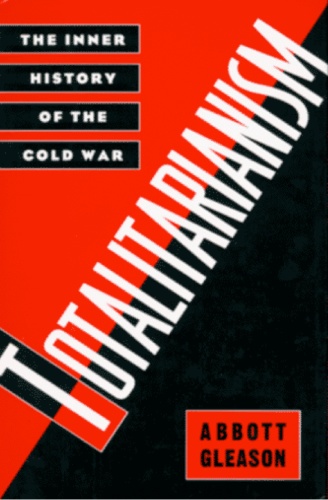[center] 
pdf | 8.4 MB | English | Abbott Gleason | 1995 | Oxford University Press | Page: 314
[/center]
Book Description :
Totalitarianism offers a penetrating chronicle of the central concept of our era--an era shaped by our conflict first with fascism and then with communism. Interweaving the story of intellectual debates with the international history of the twentieth century, Gleason traces the birth of the term to Italy in the first years of Mussolini's rule. Created by Mussolini's enemies, the word was appropriated by the Fascists themselves to describe their program in what turned out to be one of the less totalitarian of the European dictatorships. He follo the growth and expansion of the concept as it was picked up in the West and applied to Hitler's Germany and the Soviet Union. Gleason's account takes us through the debates of the early postwar years, as academics in turn adopted the term--most notably Hannah Arendt. The idea of totalitarianism came to possess novelists such as Arthur Koestler ( Darkness at Noon) and George Orwell (whose Nineteen Eighty-Four was interpreted by conservatives as an attack on socialism in general, and subsequently suffered criticism from left-leaning critics). The concept entered the public consciousness still more fully with the opening of the Cold War, as Truman used the rhetoric of totalitarianism to sell the Truman Doctrine to Congress. Gleason takes a fascinating look at the notorious brainwashing episodes of the Korean War, which convinced Americans that Communist China too was a totalitarian state. As he takes his account through to the 1990s, he offers an inner history of the Cold War, revealing the political charge the term carried for writers on both the left and right. He also explores the intellectual struggles that swirled around the idea in France, Germany, Italy, Czechoslovakia, and Poland. When the Cold War drew to a close in the late 1980s, Gleason writes, the concept lost much of its importance in the West even as it flourished in Russia, where writers began to describe their own collapsing state as totalitarian--though left-wing Western thinkers continued to resist doing so. Ideal for courses in politics and modern history, Totalitarianism provides a fascinating account of one of the most enigmatic yet compelling ideas of our time.
[center]
Download link Here
http://nitroflare.com/view/20EA0C973AC25A0/
[/center]
Thanks for downloading Totalitarianism :